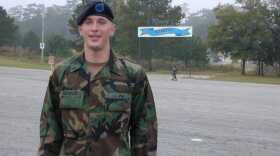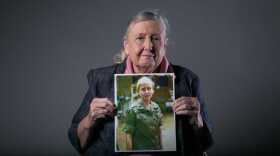As a young man in the late 1960s, Hal Noyes faced the prospect of being drafted to fight in Vietnam. He was opposed to the war, but decided to enlist, hoping to avoid combat.
By 1969, he found himself stationed at Fort Bragg, working in the supply room in the John F. Kennedy Special Warfare Center. He and a group of fellow soldiers decided to join G.I.ŌĆÖs United Against the War in Vietnam and began publishing Bragg Briefs, which became one of the longest running G.I. anti-war newspapers of the Vietnam era.

Noyes recalled it was both frightening and exhilarating to protest the war as an enlisted soldier.
The activists handed out the paper at the PX and the Enlisted MenŌĆÖs Club. When Army brass got word, Bragg Briefs was banned, but Noyes and his friends persisted, sneaking the publication into barracks and handing it out on Hay St.
ŌĆ£We were trying to reach both other soldiers and the public at large to try to convince them the war was wrong,ŌĆØ he said.
Noyes said many low-ranking soldiers were sympathetic to their cause, as were soldiers returning from Vietnam.
ŌĆ£By the time I left in ŌĆś71, it was socially unacceptable to be for the war in my barracks, " said Noyes. "We really convinced a lot of soldiers. It wasnŌĆÖt just me and my little group at Fort Bragg, there were anti-war soldier and sailor and airman organizations all around the world. At one pointtherewereover 100 G.I. anti-war newspapers like ours.ŌĆØ
ŌĆ£[It] showed me I could make an impact far beyond just me.ŌĆØ
Ft. Bragg Stories is a collaboration between the Fayetteville Observer and ╣Ž╔±app's American Homefront Project to commemorate a century of history at Fort Bragg through personal narratives. You can hear other stories in the series











